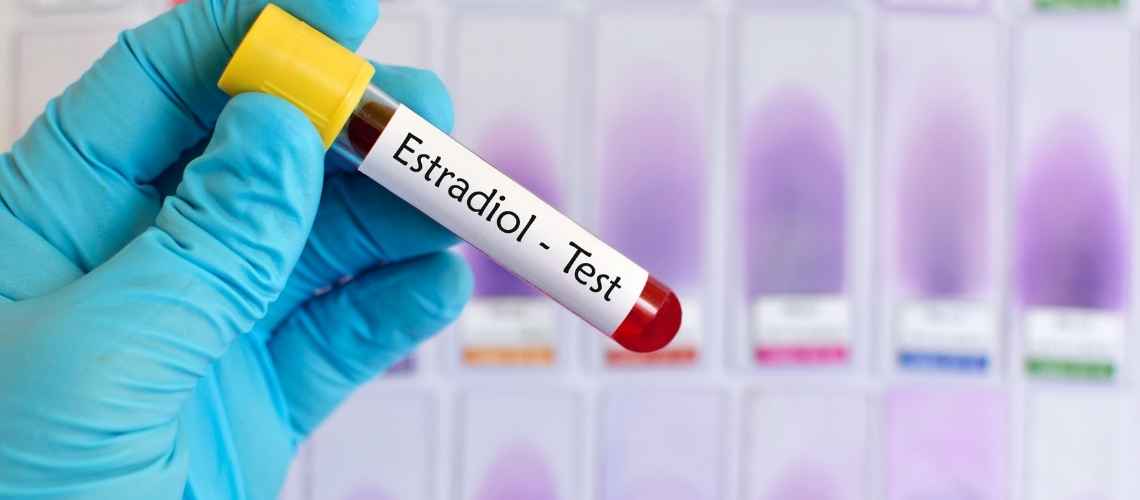A pregnancy loss that happens before the fifth week is referred to as a chemical pregnancy. Chemical pregnancy may be indicated by a positive pregnancy test result followed by a negative result a few weeks later. The majority of women who encounter them go on to have healthy pregnancies.
What is a chemical pregnancy?
A very early miscarriage that happens in the first five weeks of pregnancy is known as a chemical pregnancy. An embryo develops, and even implants in the lining of your uterus (implantation), but then stops growing. Because chemical pregnancies occur so early, many women who miscarry are unaware of it.
If you’re trying so hard to get pregnant, the losses from artificial pregnancy can sometimes be terrible. However, having a chemical pregnancy doesn’t necessarily preclude you from being able to have children. Early miscarriages are common, but many women go on to have healthy pregnancies. (1)
What can cause a chemical pregnancy?
The embryo in a chemical pregnancy releases hCG, a hormone it requires for growth. Pregnancy tests use this hormone to determine whether a woman is pregnant. An embryo stops producing hCG when it stops growing.
The exact reason why embryo development stops during a chemical pregnancy is unknown. The embryo stops growing presumably as a result of a genetic or DNA abnormality. A developing embryo may occasionally fail to properly implant or connect to the uterine lining. Your hCG levels decrease as a result, and pregnancy tests are negative. (2)
A chemical pregnancy can occur for a variety of reasons. Here are some causes of chemical pregnancy.
- Genetic abnormalities in the embryo which is a very common cause
- High blood sugar levels in diabetic women
- The thin uterine lining as the embryo cannot implant (3)
Who do chemical pregnancies affect?
A chemical pregnancy can happen to anyone who is capable of getting pregnant. If you’re attempting to get pregnant through in vitro fertilization (IVF treatment in Turkey), you could be more likely to spot a chemical pregnancy because these pregnancies are monitored so carefully. However, IVF by itself is not a risk factor for a chemical pregnancy.
Your likelihood of having an early miscarriage rises if:
- You are 35 years of age or older.
- Your uterus is unusually shaped.
- You have an imbalance in your hormone levels.
- You have a sexually transmitted infection (STI).
- You suffer from polycystic ovarian syndrome (PCOS), diabetes, or thyroid problems.
You discuss with your doctor any possible risk factors. You can develop a care plan together to address any underlying problems that might be impairing your fertility. (4)
What symptoms and signs are observed in a chemical pregnancy?
Knowing the typical symptoms of a chemical pregnancy can be useful for early diagnosis and treatment.
- If you experience a week-later period than usual,
- If the results of your pregnancy test are positive and then you start getting your period,
- If you get a negative result a few weeks after a positive pregnancy test,
- If you are experiencing heavier-than-normal bleeding and more severe cramping,
- If you took a pregnancy test and it came back positive, but you don’t have the typical early pregnancy symptoms,
These may be symptoms and signs of chemical pregnancy. Without employing a pregnancy test, it is impossible to determine whether you had a chemical pregnancy (using a urine or blood test). (5)
Why do I keep having chemical pregnancies with IVF?
Chemical pregnancy refers to an early miscarriage that happens as early as possible before a woman knows she is pregnant. This type of miscarriage typically happens between four and six weeks of pregnancy before an ultrasound scan is done.
Women undergoing fertility treatment are often more familiar with chemical pregnancies than those who conceive naturally. This is because they usually take a pregnancy test 12 to 14 days after embryo transfer and are more careful about observing any symptoms. On the other hand, patients without IVF may only suspect menstrual delay.
The symptoms of a chemical pregnancy are not always obvious, but some women may have cramping, discharge, or light bleeding before normal withdrawal bleeding, while others may have no symptoms at all.
The most frequent type of miscarriage, chemical pregnancy occurs in about 50% of first-time pregnancies. Although hormone imbalances and problems with blood coagulation can sometimes be causes, chromosomal abnormalities in the developing embryo are typically the main culprit. Although a chemical pregnancy can be discouraging, it’s crucial to keep in mind that it was hoped for and that it’s fair to feel disappointed. Happily, future pregnancies may still end with healthy babies.
How can chemical pregnancy be avoided?
A chemical pregnancy cannot be stopped. The majority of chemical pregnancies occur when the embryo’s DNA has a flaw that stops it from growing. The next embryo and those that come after it have a good chance of developing normally.
Supporting yourself emotionally after a chemical pregnancy with IVF
Supporting oneself emotionally after a chemical pregnancy during IVF necessitates a compassionate approach. Initially, one must recognize the profound sense of loss that accompanies such an experience. This acknowledgment serves as the first step towards healing. Furthermore, seeking support plays a crucial role in navigating this challenging time. Conversations with a partner, family, friends, or a dedicated therapist can provide a safe space to express feelings and begin the process of recovery.
Moreover, engaging in self-care activities emerges as a vital component of emotional well-being. Such practices might include:
- Regular exercise to foster physical health and emotional release
- Spending quality time amidst nature to find peace and rejuvenation
- Pursuing creative outlets to express oneself and find solace
Additionally, professional assistance becomes essential if one encounters persistent or severe emotional distress. A therapist or counselor specializing in pregnancy loss can offer tailored support and coping strategies. Finally, it is imperative to remember that one is not isolated in this experience. Many individuals face chemical pregnancies, and through embracing support and self-care, progress towards healing and the journey to parenthood becomes attainable. Emphasizing these steps ensures a nurturing path towards emotional recovery and resilience.
Sources:
Coulam, C. B., & Roussev, R. (2002). Chemical pregnancies: immunologic and ultrasonographic studies. American Journal of Reproductive Immunology, 48(5), 323-328.





